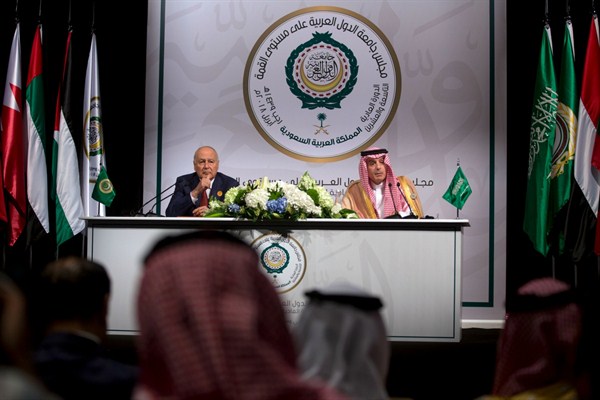The early reactions of Syria’s neighbors to the joint strikes by the United States, France and the United Kingdom on three chemical weapons-related facilities last Friday night fell into familiar patterns. As the reality of the very limited nature of the attack sinks in, expect the full range of responses, capturing the deep ambivalence in the Middle East toward American power. Most countries in the region resent excessive demonstrations of what they see as American arrogance, but they miss American force when it is not there. Some even hoped in vain that the strikes would signal a new willingness for Washington to end the slaughter in Syria.
Most commentary in Western capitals has coalesced around the view that the U.S., France and the U.K. chose a cautious and mostly symbolic demonstration of force against Syrian President Bashar al-Assad’s appalling use of chemical weapons, most recently in Douma, a suburb on the outskirts of Damascus. They struck only three targets—a scientific research center outside Damascus involved in the production of chemical weapons, and two chemical weapons storage facilities near Homs—where the risk of civilian or Russian casualties was also low. The message was to uphold the global norm against the use of chemical weapons, not to assert a new role for the U.S. and its allies in the Syrian civil war. Their demand of Assad was to stop using chemical weapons, full stop.
The attack had other notable features, including Washington’s decision to engage key European partners in France and the U.K., and the complexity of launching cruise missiles from multiple platforms in the Mediterranean, the Persian Gulf and the Red Sea. Pentagon briefers proudly proclaimed that it was “precise, overwhelming and effective,” and would set the Syrian chemical weapons program back “for years.”

